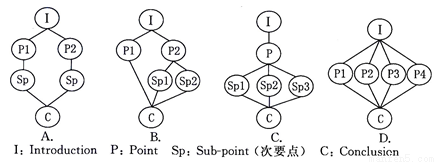题目内容
根据短文内容,从短文后的选项中选出能填入空白处的最佳选项。选项中有两项为多余选项.
Everyone knows that good time management skills are important to students if they want to do well in school. _1.__ The skills listed below are quite important.
You should have the ability to say “no”. A party this weekend? A cool club to join? An overnight trip on Saturday? A quick pizza with your classmates that turns into three hours of just hanging out? Learning to say “no” can save you a lot of time. But it’s not easy to say “no”. You should develop some good skills in saying “no”. ___2.___
You shouldn’t spare time for all the fun activities. High schools are amazing because there is always something fun for you to take part in. Unfortunately, you cannot spend time on all of the fun activities. __3.___ You can go there when you finish your homework. In this way, you needn’t feel guilty about enjoying yourself.
_4.__ Some students like putting off things. This is a bad habit. You may end up with too many tasks one day. If you have a task, don’t wait to get started until the last week, because you may not know what to do at all if you have too many tasks and you may end up in crisis.
_5.__ Staying up a little too late? Maybe not eating a healthy dinner every night of the week? In order to keep in good health, you have to check on time so as to be energetic. Practicing a little self-care can really go a long way towards making sure you can have enough passion for your work with your limited time while in school.
A. Choose the one that you like most.
B. You should keep your health in check.
C. You should avoid putting off your tasks.
D. Try your best to get rid of your bad habits.
E. It is very good for your time management.
F. Here are some tips to help you learn to say “no”.
G. But what skills are needed for good time management?


